The 11 Best Collagen Powders in 2023
The fountain of youth in powder form, if you will.


With all the protein powders, hair vitamins, and other dietary supplements on the market, it's often hard to keep up. Collagen powders, in particular, have skyrocketed in popularity in recent years, promising to give customers flowing hair, healthy nails, and supple skin when used in tandem with other high-quality maintenance products, like moisturizers, serums, oils, and shampoos and conditioners. But what do collagen powders really do—and are they worth all the hype?
First and foremost, it's important to understand what collagen is and what kind of role it plays in fostering healthy hair, skin, and nails. Per the National Library of Medicine, collagen is a protein that makes up the structure of many of our cells and tissues. Found in connective tissues, tendons, bones, cartilage, and skin, it aids in immune response, tissue repair, and other essential cellular functions.
"By age 30, our bodies begin to lose collagen and continue to produce less each year, with production diminishing significantly by the age of 50," notes Nutrafol's Vice President of Product Marketing & Innovation Sam Archer. In regards to hair health, Archer adds: "Our scalps are made up of 75 percent collagen. As we age, the loss of collagen and elastin means that we can no longer hold onto strong hair at its foundation and hair becomes weaker. This can result in hair thinning and loss."
Enter collagen powders, the purported solution to thinning hair, alongside newfound hair and skin health. But the cure for hair thinning, at least, isn't so simple: Archer says, "Collagen peptides can replenish collagen within our bodies, however collagen peptides cannot improve hair growth on its own—which is a common misconception."
Does Collagen Powder Work?
"The evidence is conflicting regarding the effectiveness of collagen powders, and whether or not they work is still up for debate," admits Peter Young, M.D., dermatologist and medical director of skincare company Facet. "There are very few scientific studies on collagen powder, and many of them have come back with mixed results. The theory behind collagen powders is that they can improve and boost our body’s collagen and collagen production, resulting in anti-aging benefits, reduction in fine lines and wrinkles, and improvement in skin hydration and elasticity."
However, many people (including me) use collagen powder and find that it produces satisfactory results. "Collagen is a protein known for being a key component in building and repairing bone, muscles, skin (including your scalp), and, yes, hair," explains Ashanti Lation, celebrity hairstylist and founder/CEO of VIP Luxury Hair Care. Furthermore, she explains that she recommends collagen powder to her clients "after childbirth, surgery or any major changes in diet or hormone levels, because these changes can lead to thinning or shedding. Collagen can provide the protein needed to strengthen the hair and lower estrogen levels."
What To Look For in Collagen Powders
As with all food and beverage items you consume, you be aware of what should be―and what shouldn't be―in your collagen powder. Archer says, "Buyers should be on the lookout for naturally efficacious ingredients in their collagen powders, as well as sustainably sourced ingredients." However, she points out that, unfortunately for vegans, "collagen peptides cannot be vegan—collagen can only be made by animals, not plants."
Dr. Young agrees, saying, "Most collagen powders originate from animal sources such as cows, pigs, and fish (“marine collagen”). Hydrolyzed collagens in which the amino acids have been broken down, are easier for your body to absorb. Look for collagen powders with a diverse amino acid profile."
And which amino acid profiles are these? "Bovine (cow) and porcine (pig) sources of collagen powder are best," he says. "You should avoid marine collagen because 'marine' is a blanket term for any aquatic animal, including shellfish, shark and jellyfish, and you never know what you’re getting. These sources of collagen are not easily absorbed by the body."
When it comes to other ingredients you should avoid, Dr. Young advises staying away from artificial colors, flavors, and sweeteners.
How Do You Use Collagen Powder?
Once you have your collagen powder of choice, you may wonder what to do with it. Luckily, it's a versatile, easy-to-use supplement, and it takes just a few seconds to incorporate into your breakfast routine.
"Most collagen powders are formulated to mix with a liquid—whether it be water, tea or coffee—to drink once a day. However, serving sizes can vary from brand to brand," says Archer. So pay attention to what the packaging says! Personally, I like mixing my collagen powder into my morning coffee, and I keep the container next to my coffee machine so that I never forget about it. Archer also suggests, "You can also add it to food that contains some water content to help it dissolve, like yogurt, soup, or a smoothie."
Lation adds, "I personally love smoothies, but I’ve seen people add it to their juice mixtures, and even bake with it."
Side Effects
Our experts all agree that before trying collagen powder, it may be best to consult your doctor about whether its ingredients make it a good option for you, particularly if you have preexisting health conditions. And, of course, if you start experiencing troubling symptoms or side effects after starting to use collagen powder, you should stop and consult your doctor.
"Most studies demonstrate collagen powders to be safe to use. The most common side effects are heartburn and stomach bloating," reassures Dr. Young. Some users also complain of skin "purging" after beginning use, meaning that the increase in collagen intake causes some breakouts. For me, these cleared in about a week.
Dr. Young also warns, "Collagen powders should be avoided in people who have a history of or high risk of developing kidney stones. However, consuming collagen in moderation as part of a normal healthy diet is unlikely to cause kidney stones in the vast majority of people."
Finally, Archer points out that women who are nursing or pregnant should consult with their healthcare providers before using collagen powders, as they have not been tested rigorously enough among that population.
The Best Collagen Powders
- Best Collagen Powder for Hair: Nutrafol Strengthening Hair Growth Duo
- Best Collagen Powder for Joint Health: Sports Research Collagen Peptides Powder
- Best Collagen Powder for Skin: Spring Valley Collagen Peptides Powder
- Best Flavored Collagen Powder: Apothekary Better Than Botox
- Best Collagen Powder for Strong Nails: Physician's Choice Collagen Peptides Powder
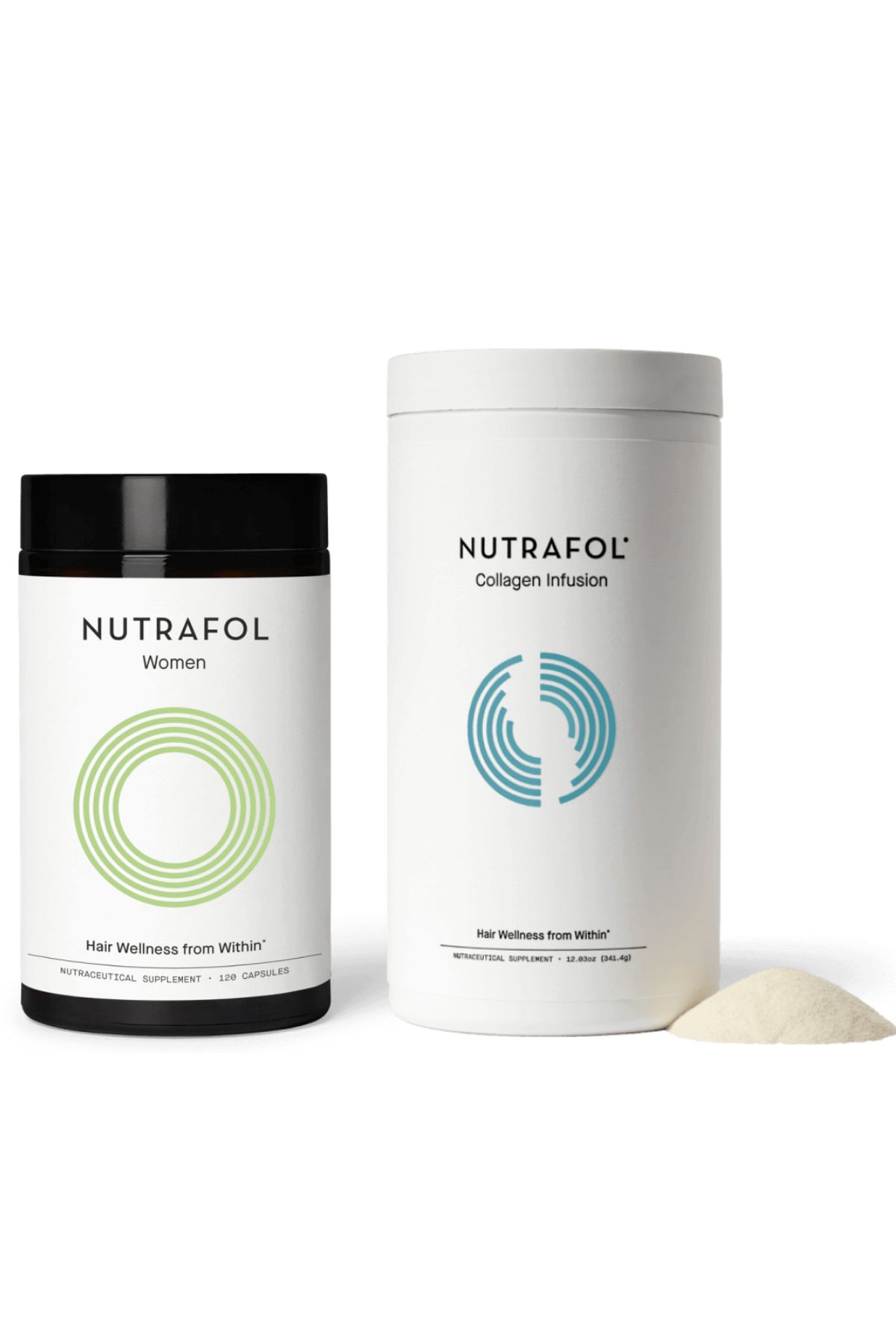
This hair-strengthening duo, which I use and love, comes with both hair vitamins and the brand's Collagen Infusion powder. Archer notes that it "replenishes collagen with bioavailable marine collagen peptides, protects from aging with a mix of Coq10 and citrus flower acids, and strengthens hair fibers with MSM."
Pros: thickening; decreases shedding; generous size
Cons: slight aftertaste; expensive
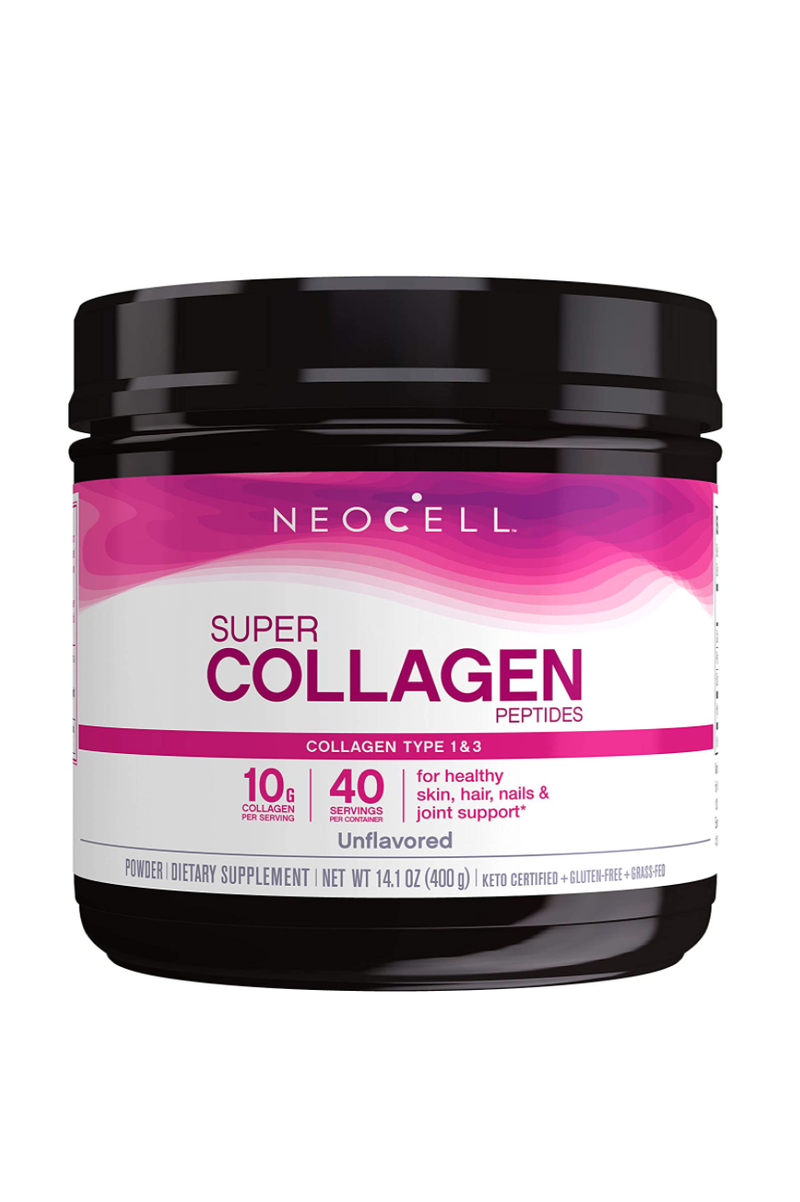
This is a radiance-boosting gem of a collagen powder that boasts feel-good ingredients like hyaluronic acid, vitamin C, and amla fruit extract, along with grass-fed hydrolyzed bovine collagen. Reviewers of all genders and ages say that it made a notable difference in their hair, skin, and nails after 30-60 days of consistent use.
Pros: thickens hair; generous size; paleo-friendly; supports healthy joints; tasteless
Cons: doesn't always dissolve as well as alternatives
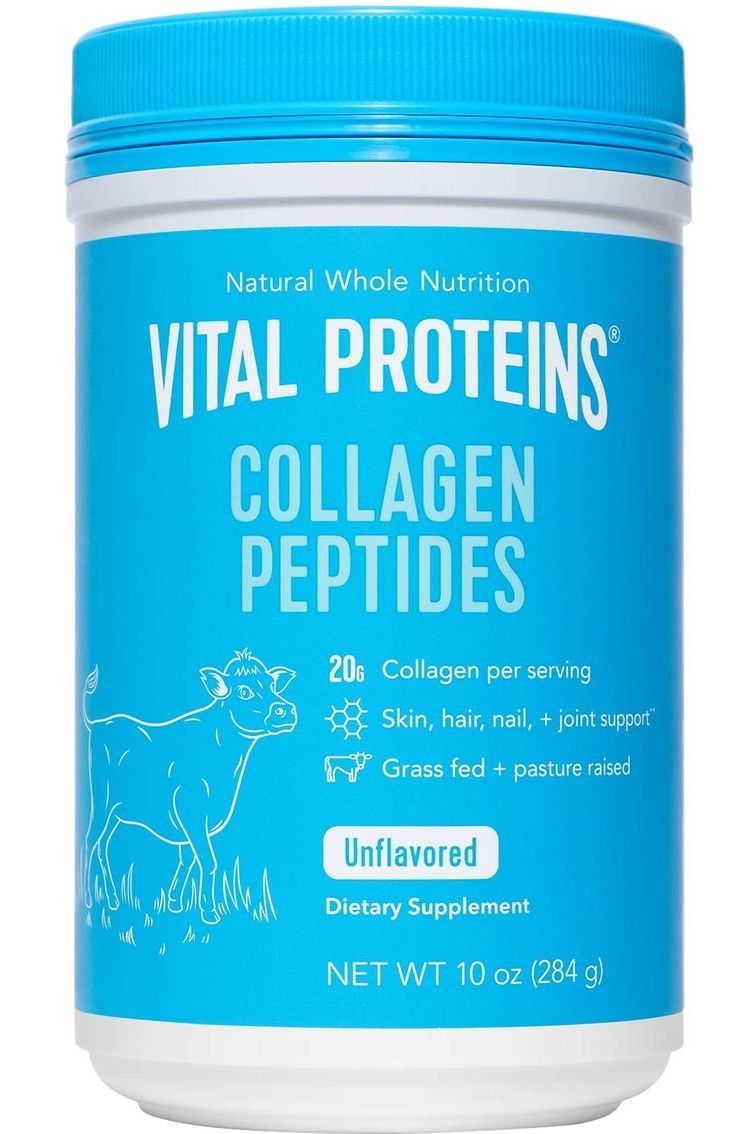
"My go-to collagen powder is from a company called Vital Proteins," says Lation. "It’s a collagen peptide formula, so the ingredients have been hydrolyzed for better absorption." Plus, she adds, "it’s completely unflavored and doesn’t clump up in liquid, so it’s super easy to mix."
Pros: no aftertaste; dissolves well; gentle on stomach
Cons: has a noticeable smell
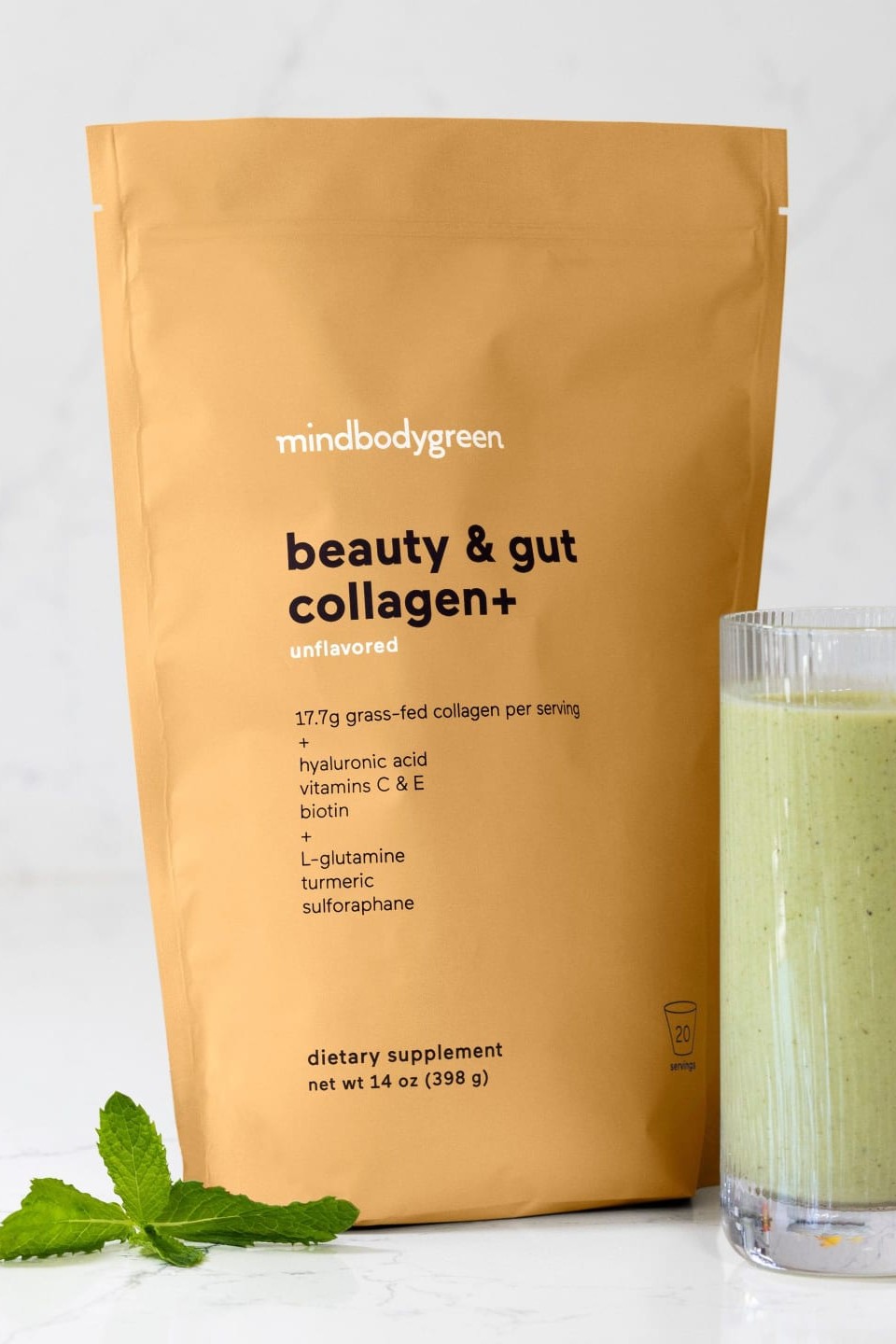
With this blend, you can add collagen peptides, hyaluronic acid, vitamins C and E, biotin, L-glutamine, and turmeric to your morning routine by simply adding one scoop to your drink of choice. Reviewers are obsessed with the impact it makes on their nails, in particular, and with how it aids chronic indigestion. Plus, it has a cocoa flavor that can enhance coffees, milkshakes, teas, and more.
Pros: free of gluten, soy, dairy, and sugar; non-GMO; grass-fed
Cons: high price for a small amount
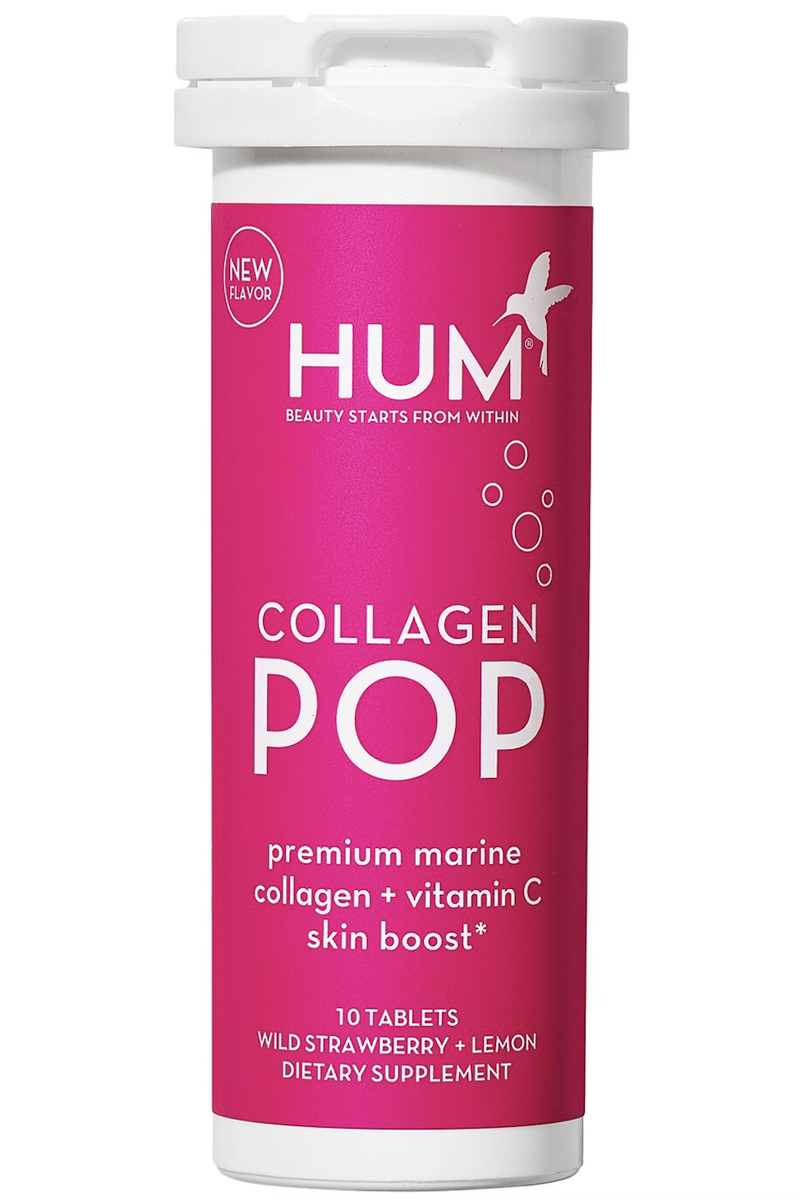
Get your daily dose of collagen on the go with these fizzy tablets by HUM. The marine collagen and vitamin C-infused tablets provide all of the key skincare benefits needed for a youthful glow. Plus, the wild strawberry and lemon flavoring is a huge hit among reviewers.
Pros: supports immune health; comes in a convenient tablet form
Cons: small amount (only ten servings); strong flavor, so not suitable for putting in coffee
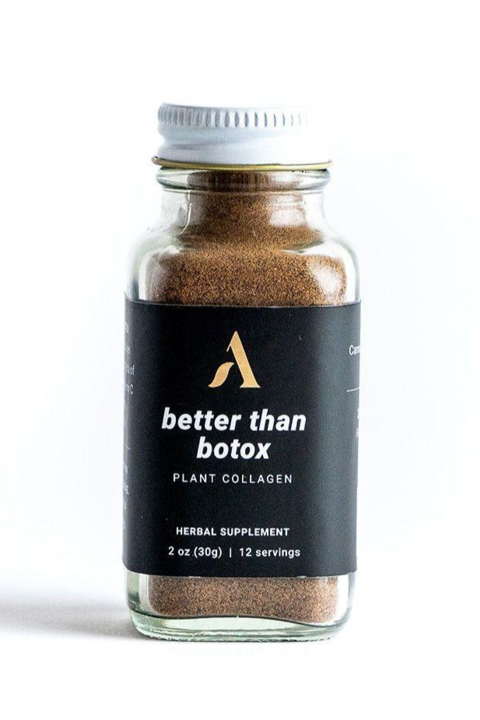
I love Apothekary's products, especially these Better Than Botox plant collagen supplements. Not only are they tasty in an understated way (I don't like fruity or sweet flavors, for the most part), but they're also effective and long-lasting―a little goes a long way.
Pros: plant-based; pleasant taste; can be difficult to get out of the bottle
Cons: small bottle; high price
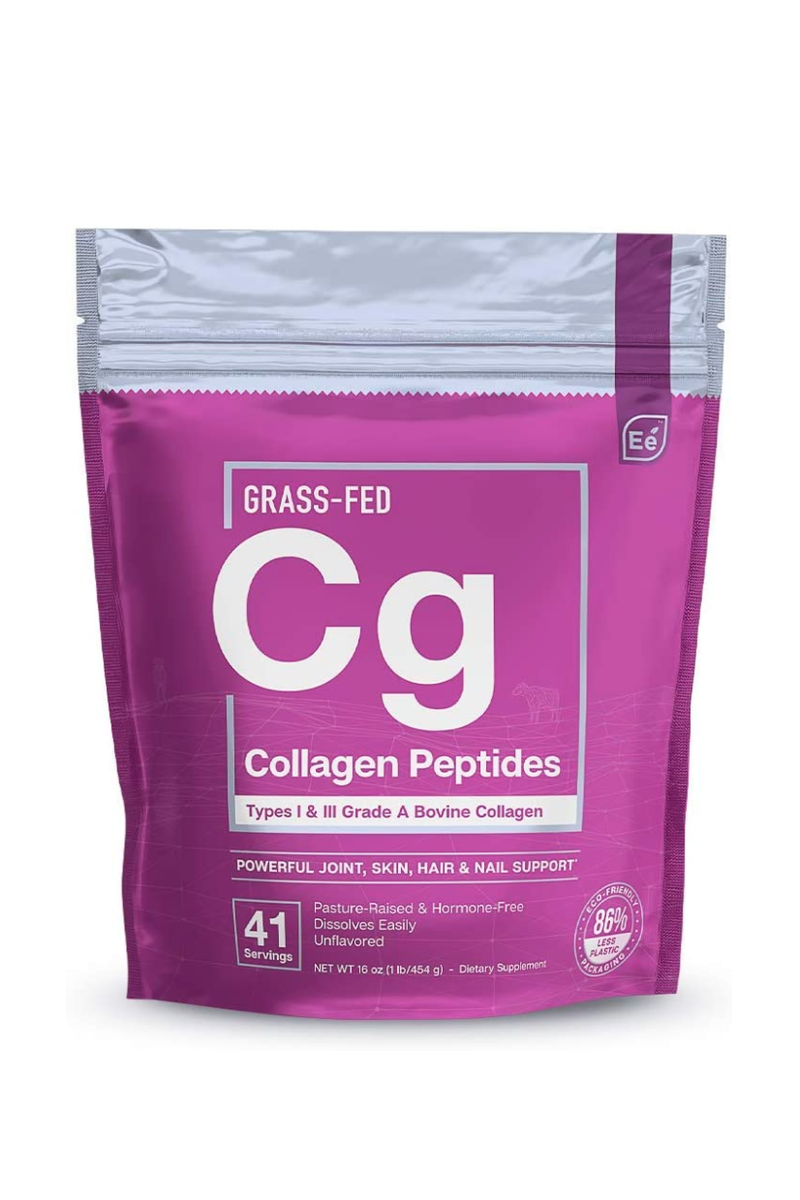
Another top hit among reviewers, this bovine collagen blend dissolves quickly and effectively in beverages, and is completely tasteless—it's like you're not drinking anything other than, well, what you're drinking. Plus, reviewers love the way it thickens and combats hair shedding.
Pros: grass-fed; paleo-friendly; doesn't contain preservatives; non-GMO; dissolves quickly
Cons: slight aftertaste
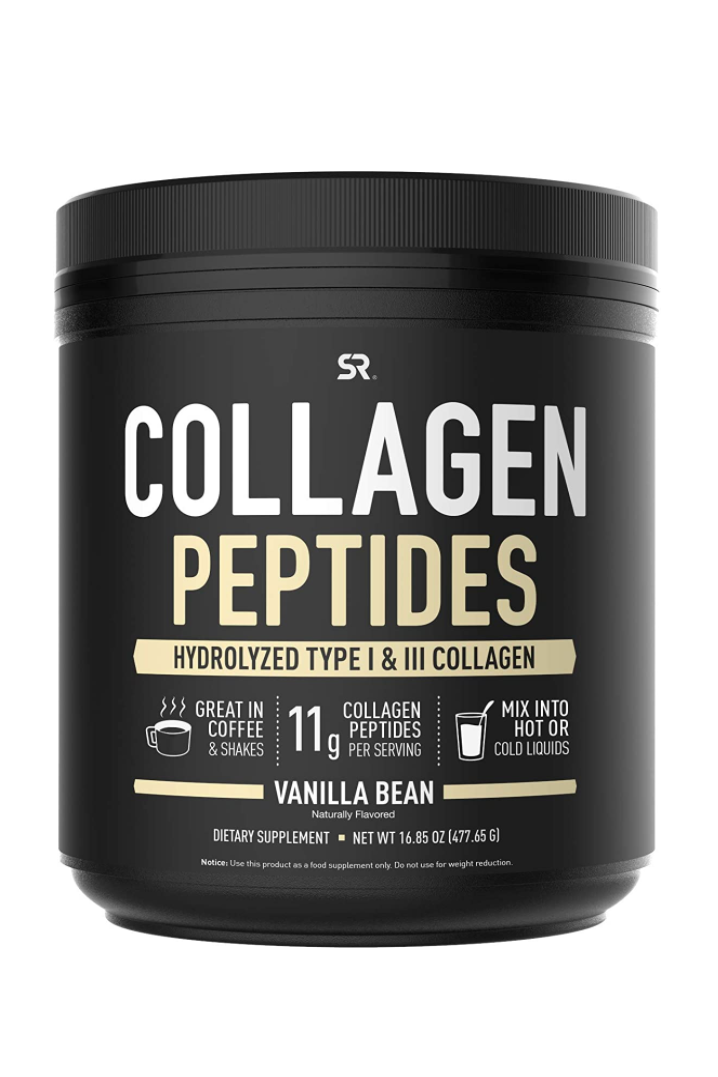
This collagen powder has a vanilla bean flavor that's great for easy mixing with milk (like a pre-workout or protein shake). Multiple customers rave out how much the formula has improved their hair shedding and thinning.
Pros: works in both hot and cold liquids; generously sized; aids with joint stiffness; aids with hair shedding
Cons: presence of flavor can be polarizing
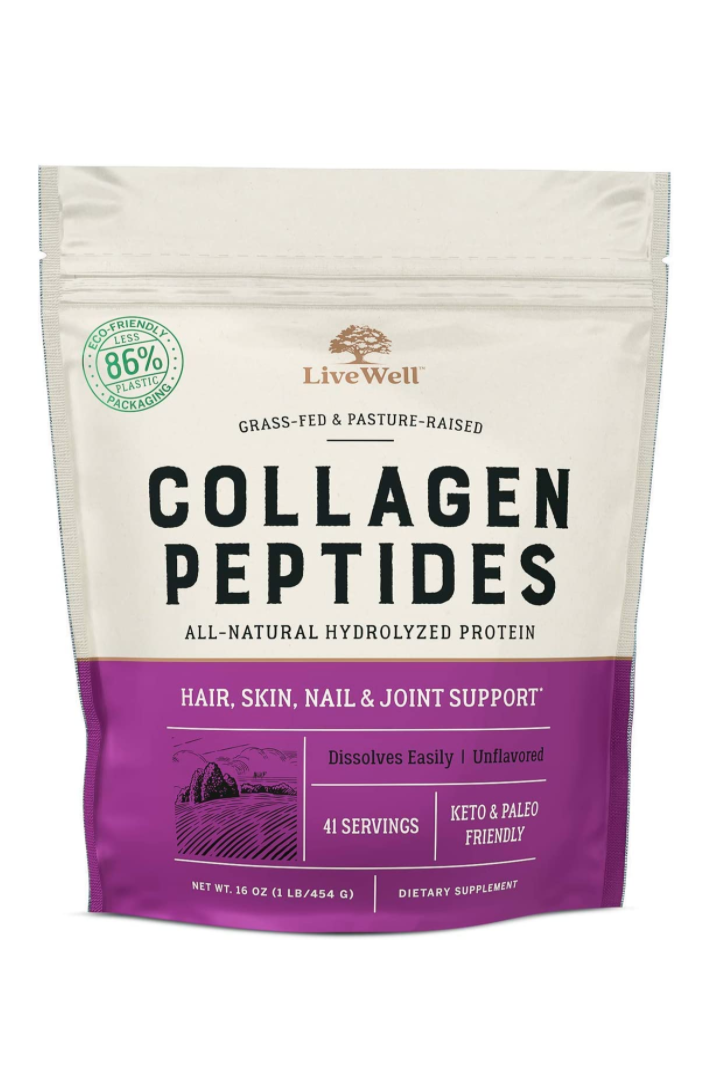
If you're looking to combat skin sagging, wrinkles, or fine lines, or if you'd like to make sure you're ahead of the skin aging curve, this is a great option for you. One reviewer says that her skin feels noticeably tighter, while others say that their faces feel smoother.
Pros: generous size; unflavored; versatile (can be used in hot and cold liquids as well as in foods)
Cons: bag makes it difficult to gauge how many servings you have left
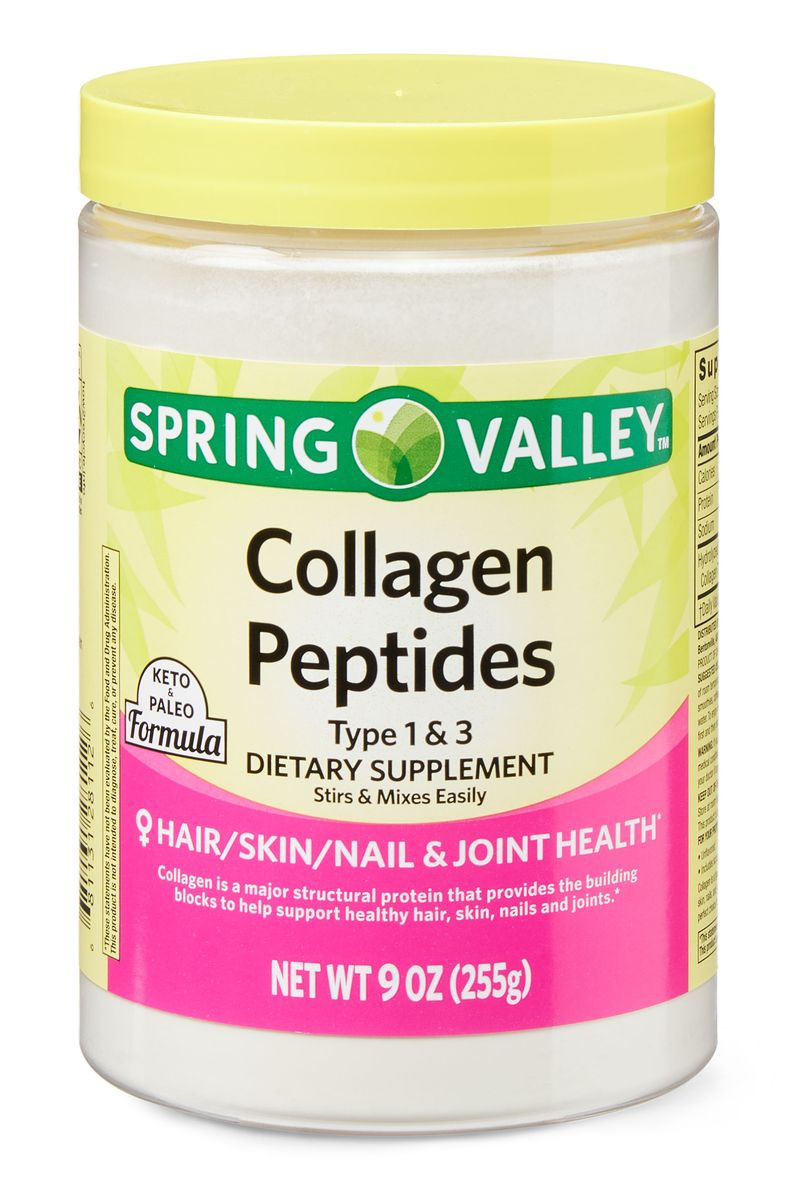
This collagen powder is budget-friendly, but that doesn't mean it isn't effective: One reviewer says that, even though she doesn't take the full directed dose daily, her skin improved so much after a month that even her doctor noticed.
Pros: great for skin and hair; effective; affordable
Cons: leaves an aftertaste; has a smell
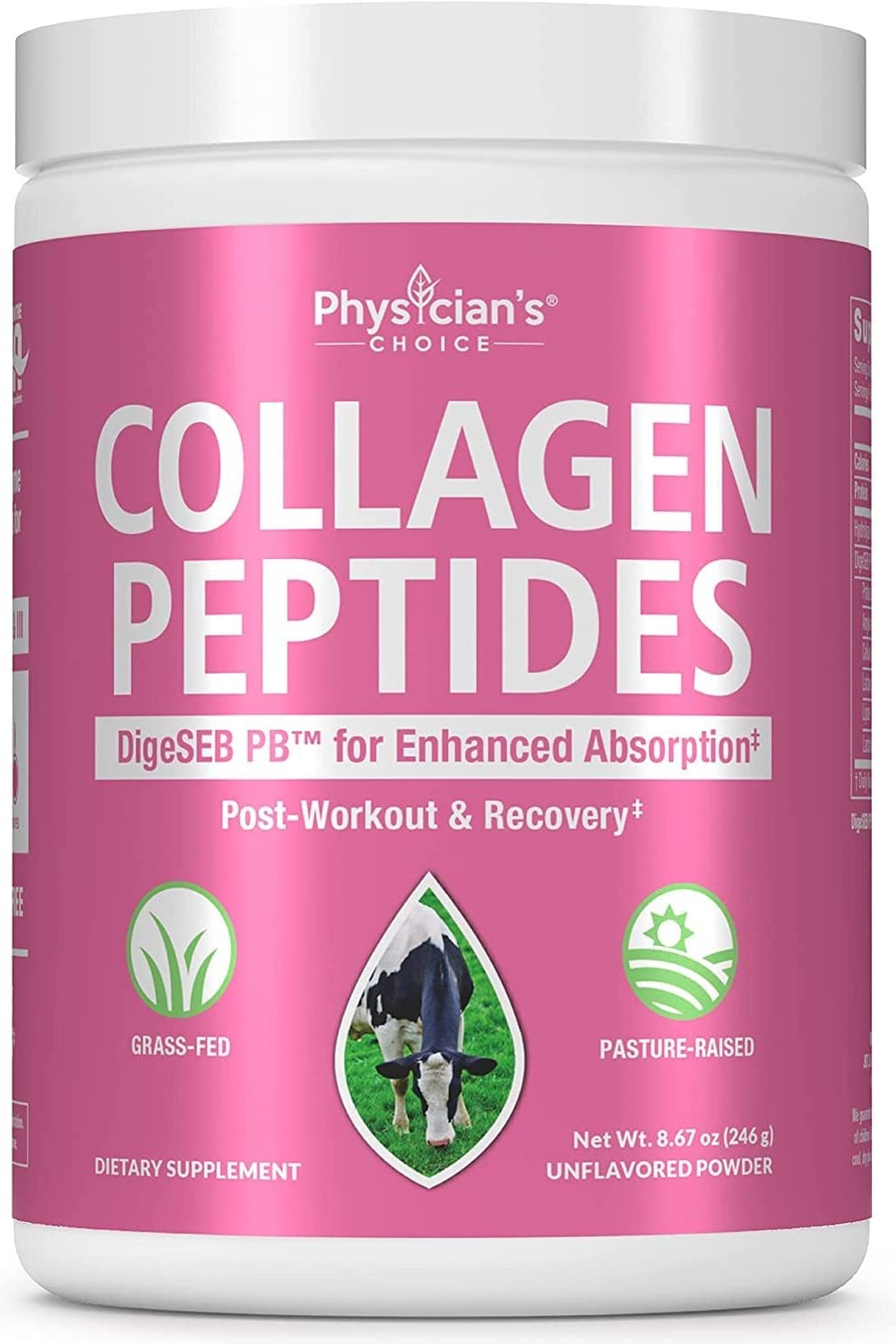
I personally love Physician's Choice, and so, apparently, do the people who bought this product. One customer says that it especially helped their knee and hand joints feel stronger and more flexible.
Pros: supports joint health; supports skin and hair health; supports strong nails
Cons: some issues with dissolving
Meet the Experts

Peter C. Young, MD is the Keeps Medical Director and a board-certified dermatologist. Dr. Young had a distinguished career serving as a physician in the U.S. Army for nine years before going on to practice dermatology in Massachusetts for 22 years. In addition to his published medical articles, Dr. Young has also been a speaker at national medical meetings on teledermatology and is a fellow of the American Academy of Dermatology. Dr. Young is currently located in Estero, FL.

Sam Archer is the Vice President of Product Marketing & Innovation at Nutrafol. A graduate of the Fashion Institute of Technology, she is currently based in New York City.
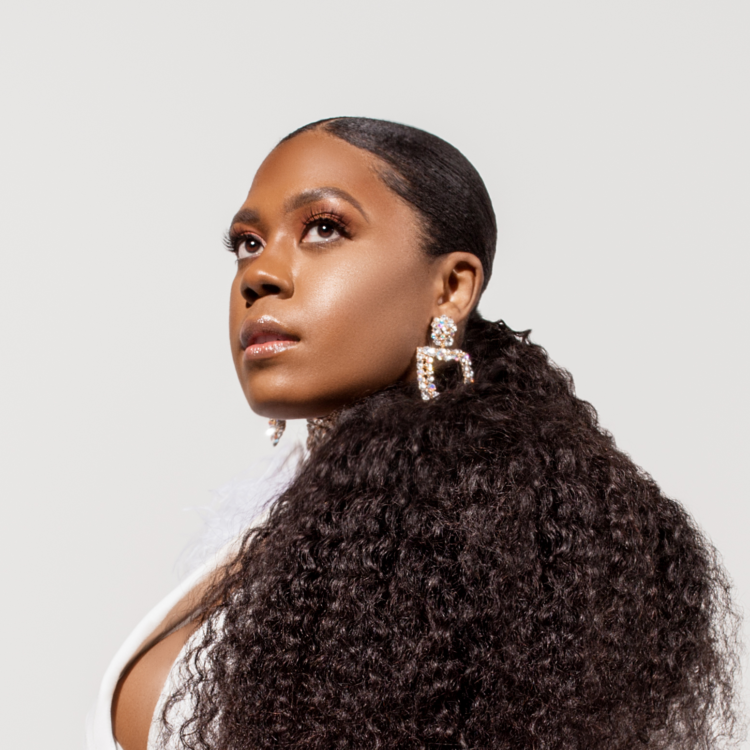
Ashanti Lation is a Master Hair Stylist with over 20 years experience. In addition to being an expert on hair growth and hair health, she champions the natural hair movement.
Get exclusive access to fashion and beauty trends, hot-off-the-press celebrity news, and more.

Gabrielle Ulubay is a Beauty Writer at Marie Claire. She has also written about sexual wellness, politics, culture, and fashion at Marie Claire and at publications including The New York Times, HuffPost Personal, Bustle, Alma, Muskrat Magazine, O'Bheal, and elsewhere. Her personal essay in The New York Times' Modern Love column kickstarted her professional writing career in 2018, and that piece has since been printed in the 2019 revised edition of the Modern Love book. Having studied history, international relations, and film, she has made films on politics and gender equity in addition to writing about cinema for Film Ireland, University College Cork, and on her personal blog, gabrielleulubay.medium.com. Before working with Marie Claire, Gabrielle worked in local government, higher education, and sales, and has resided in four countries and counting. She has worked extensively in the e-commerce and sales spaces since 2020, and spent two years at Drizly, where she developed an expertise in finding the best, highest quality goods and experiences money can buy.
Deeply political, she believes that skincare, haircare, and sexual wellness are central tenets to one's overall health and fights for them to be taken seriously, especially for people of color. She also loves studying makeup as a means of artistic expression, drawing on her experience as an artist in her analysis of beauty trends. She's based in New York City, where she can be found watching movies or running her art business when she isn't writing. Find her on Twitter at @GabrielleUlubay or on Instagram at @gabrielle.ulubay, or follow her art at @suburban.graffiti.art